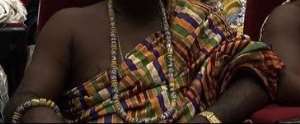
As the Director of the Institute for Local Government, Dr. Nicholas Awortwe, recently observed, the virulent instigation for the abortion of the December 17 Referendum, that was aimed at healthily and constructively democratizing the conduct and culture of local governance in the country, by some leaders of the National House of Chiefs (NHC), was “a lost opportunity for reforms in the local governance system in the country” (See “Okyenhene Calls for Inclusion of Chiefs in Local Governance” GhanaNewsAgency.org 12/5/19). Put in simple language, what the Director of the Institute for Local Government is saying is that by flagrantly sabotaging the progressive agenda to further and fully democratize the country and our local governance system by the Akufo-Addo-led Administration of the New Patriotic Party (NPP), the key operatives of the National House of Chiefs have more than amply demonstrated that for real progress to occur in the country, they cannot be made central and integral to the local governance framework of the country.
The Okyenhene, Osagyefo Amoatia Ofori-Panyin, II’s call for chiefs to be included in the local governance system is therefore patently incongruous with the strict merit upon which the country’s democratic postcolonial governance principles are predicated. The Okyenhene is, however, accurate to observe that in the past some major progressive traditional rulers in the country, foremost among them, the immortalized Osagyefo Nana Sir Ofori-Atta, I, had helped to provide for the critical needs of their communities and thus positively contributed to the upgrade of the quality of life of the proverbial average Ghanaian citizen. But, of course, what Nana Amoatia Ofori-Panyin, II, left out of his otherwise very significant observation is the fact that progressive traditional rulers like Osagyefo Ofori-Atta, I, were remarkable entrepreneurs in their own right who equally relied on their own genius to engage in progressive and commercially viable ventures for the development of their own communities and the country at large.
We need to also quickly point out that it was President Kwame Nkrumah who effectively sidelined traditional rulers who were ideologically not on the same page as his faux-socialist-oriented regime of the Convention People’s Party (CPP) – (See Richard Rathbone’s “Kwame Nkrumah and the Chiefs”). Some of our chiefs and traditional rulers are already engaged in economically profitable venture and must be strongly encouraged by the operatives of the Central Government to continue to do so. Not very long ago, for example, some entrepreneurial training program that The Asantehene, Otumfuo Osei-Tutu, II, had embarked upon, that was aimed at teaching Asante Chiefs self-reliant entrepreneurial skills, made the news headlines over the course of several weeks.
As of this writing, yours truly was not aware of what had become of that otherwise laudable and progressive venture. We must also point out that The Asantehene was one of the traditional rulers who mischievously caused the evisceration and cancerous abortion of the otherwise visionary decision by President Addo Dankwa Akufo-Addo to have the entrenched Clause of Article 53(3) amended so as to fully and officially democratize the conduct of local governance in the country. If our chiefs and traditional rulers want to be taken seriously and be fully engaged in the governance of the country at any level, they have to do so on merit and not on the incongruous and anachronistic basis of hereditary or the decidedly effete and obsolescent basis of Divine Kingship Rights.
We live in the postcolonial and postmodern world, where the privilege of leadership must be based purely on merit and wisdom or intellectual acumen, and not merely on birthright. Of course, the rejected proposal by Dr. Joseph (Kwame Kyeretwie) Boakye Danquah to have the current National House of Chiefs elevated to a progressive and politically relevant and viable status equivalent to Great Britain’s revered House of Lords, which would be a deft and shrewd combination of the crossbred characteristics between the National House of Chiefs and the Council-of-State could equally be constructively explored and progressively implemented (See Okoampa-Ahoofe, “Dr. JB Danquah: Architect of Modern Ghana”). But, of course, this cannot be effectively implemented while our chiefs are engaged in activities that are inimical to the onward democratic movement of the country.
*Visit my blog at: kwameokoampaahoofe.wordpress.com Ghanaffairs
By Kwame Okoampa-Ahoofe, Jr., PhD
English Department, SUNY-Nassau
Garden City, New York
December 5, 2019
E-mail: [email protected]




 Reintroduce Fiscal Responsibility Act to tackle election budget overrun — Osafo ...
Reintroduce Fiscal Responsibility Act to tackle election budget overrun — Osafo ...
 Flooding: Obey weather warnings – NADMO to general public
Flooding: Obey weather warnings – NADMO to general public
 Fire in NDC over boycott of Ejisu by-election
Fire in NDC over boycott of Ejisu by-election
 NDC to outdoor Prof Jane Naana Opoku-Agyemang as running mate today
NDC to outdoor Prof Jane Naana Opoku-Agyemang as running mate today
 Ejisu: CPP seeks injunction to stop April 30 by-election
Ejisu: CPP seeks injunction to stop April 30 by-election
 Dismiss ECG, GWCL, GACL bosses over losses – United Voices for Change tells gov’...
Dismiss ECG, GWCL, GACL bosses over losses – United Voices for Change tells gov’...
 Submit 2023 audited financial statements by May – Akufo-Addo order SOEs
Submit 2023 audited financial statements by May – Akufo-Addo order SOEs
 Current power outages purely due to mismanagement – Minority
Current power outages purely due to mismanagement – Minority
 ECG hoists red flag to fight Ashanti Regional Minister over arrest of General Ma...
ECG hoists red flag to fight Ashanti Regional Minister over arrest of General Ma...
 Mahama’s 24hr economy will help stabilise the cedi; it’s the best sellable polic...
Mahama’s 24hr economy will help stabilise the cedi; it’s the best sellable polic...
